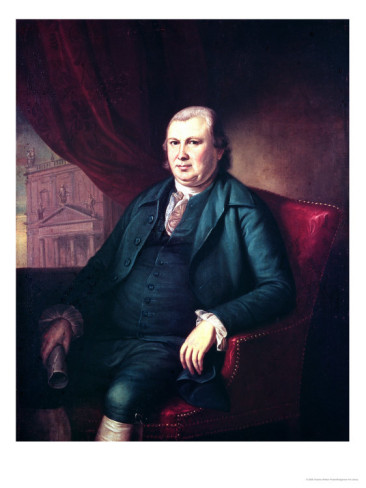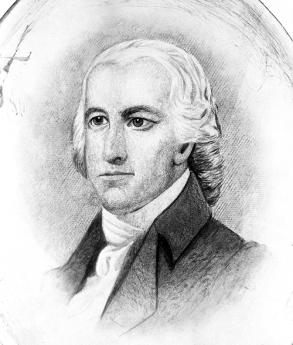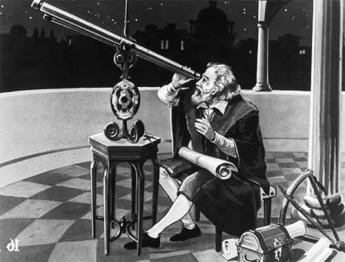Related Topics
Personal Finance
The rules of financial health are simple, but remarkably hard to follow. Be frugal in order to save, use your savings to buy the whole market not parts of it, if this system ain't broke, don't fix it. And don't underestimate your longevity.
Cultural
Culture and Traditions (2)
Customs, Culture and Traditions (2)
.
Robert Morris and America
Robert Morris was an energetic problem-solver. In solving those problems he devised some innovative solutions which have become such axiomatic principles of a republic and its economics, that his name is seldom associated with them.
Right Angle Club 2012
This ends the ninetieth year for the club operating under the name of the Right Angle Club of Philadelphia. Before that, and for an unknown period, it was known as the Philadelphia Chapter of the Exchange Club.
Statement of Accounts, March 1785

|
| Robert Morris |
AFTER resigning his position as Financier of the United States, Robert Morris worked for five months laboriously summarizing and detailing his official activities, and then he paid for printing five hundred copies of it. The document had a five thousand word preamble and over two hundred printed pages of detailed accounts, a prodigious effort. And a rather unprecedented one in an environment of traditional national secrecy about its accounts, except for the pioneering efforts of Necker in France. His reward at first was an infuriating discovery five years later that the government had not released his report to the public, and continued throughout this time to investigate Morris's earlier activities on the Secret Committee. The standard of bookkeeping for a secret committee engaged in smuggling arms before the Declaration of Independence was understandably obscure, and to have it flogged for failing to uphold the improved standards of government accounting which Morris later devised for the new nation was such a mixture of ingratitude and slyness that the behavior seemed well beyond infuriating. Nevertheless, it must have been gratifying to end the report with a positive balance of $21,000 even after eight years of struggle, war, and improvisation. The magnitude of this achievement was not lost on others in a position to see the contrast with earlier efforts, encapsulated by James Madison whose committee report concluded, "It appears to the committee that the regular official examination has already been made, and it would be inexpedient to incur the expense of a re-examination."
Madison by this time was evolving into a political opponent of Morris, but Samuel Osgood was a declared opponent of his approach to government accounts. Osgood's assessment of his opposition to the approach was prefaced with a ringing statement of its effectiveness: "I will tell you very freely, that in mere money transactions, he has saved the United States a very large sum... I am also of the opinion that much more regularity has been introduced into the keeping of accounts than ever before existed. This is a matter in my mind of very great importance. And without the strictest attention to it, the several states ought not to trust Congress with a single farthing of their money."

|
| Samuel Osgood |
The supreme irony of this situation was that by imposing strict accounting standards where none had previously existed, Morris was offering to his enemies a club to beat him with. Instead of recognizing that Morris was both too diligent and too rich to bother with cheating, there emerged a duel in which his enemies took unusual behavior to be a sure sign of wickedness, while Morris absolutely courted personal disaster, supremely confident he was unchallengeable.
There are two enduring truths to both positions. It is absolutely true that a well-informed public has a perfect right to do anything it pleases, regardless of the existing rules of government, regardless of the opinions of predecessors, heedless of the opinions of anyone else, past present or future. If a republic has supplanted a monarchy, the republic in a sense has the same divine rights. It's just unwise to act that way in anything but extreme circumstances.
On the other hand, it is also absolutely true that stability, peace, and prosperity are most likely enhanced by avoiding the mistakes of the past, following the accepted rules of conduct, and avoiding the counsel of loud and unstable leaders. Once in a while, a genius does appear and his discoveries should be adapted for future use as rules. Once in a while, a treasured maxim needs to be discarded. In a limited way, these evolutions of the rules of the road are an application of Galileo's invention of the scientific method, applied to the Common Law by Sir Francis Bacon. Make a likely conjecture, then verify it. And the second source of societal wisdom is the constant pressure of Society's Hidden Hand, as described by Adam Smith. The American Revolution was not so much an overthrow of a boisterous king, as it was incompletely successful incorporation of existing principles into a Constitutional system of government.

|
| Galileo's invention |
Considering the convulsive upheaval caused by its principles, the 18th Century colonists must be forgiven for misjudging their situation when confronted with a genius like Robert Morris. In barely a moment of time, Morris assembled these ideas into a vastly improved system of government management, immediately proved that it made the country rich, and demonstrated that he had the common sense to make himself rich using the same ideas. Even the idea usually attributed to his friend George Washington, that honesty is the best policy, sounds more like Morris than Washington, and certainly more like Morris than Alexander Hamilton. Only the likes of John Adams protested that honesty came from God. Morris did not deny that was possible, but acted as though it was irrelevant.
Pay attention to the voice of consensus, be quick and alert to occasional innovation, and don't waste your time being crooked. With these three rules, Morris got rich and made his country rich, enraging those who do not think riches should be a universal goal. Don't want to be a millionaire? Plenty of other people will take your place.
Our two-party system began in Appalachia, and one poor soul found himself marooned there. Hugh Henry Brackenridge, a representative of Western Pennsylvania, cried out, "If they would let Mr. Morris alone, he would make Pennsylvania a great people. But they will not suffer him to do it!" Brackenridge was never elected again.
REFERENCES
| Robert Morris: Financier of the American Revolution: Robert Morris: Charles Rappleye: ISBN-10: 1416570926 | Amazon |
Originally published: Monday, October 31, 2011; most-recently modified: Wednesday, June 05, 2019
| Posted by: Gytha | Nov 23, 2011 4:38 PM |